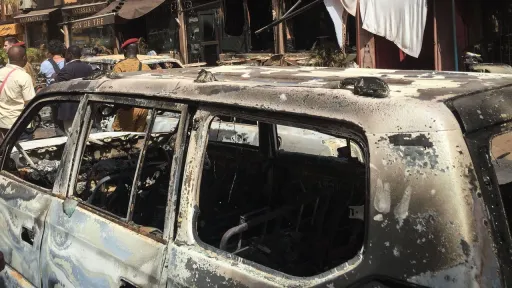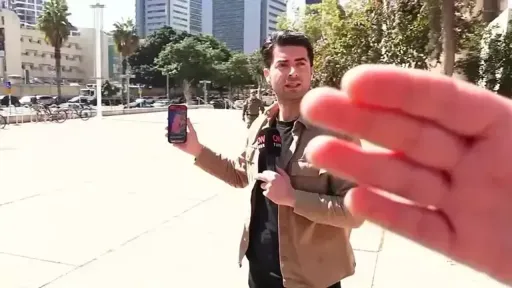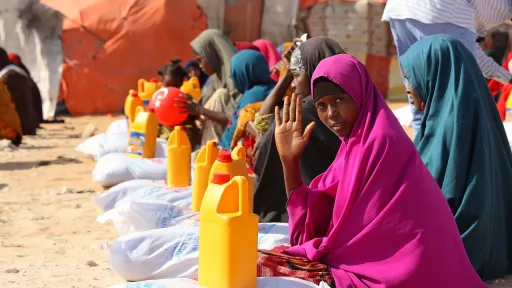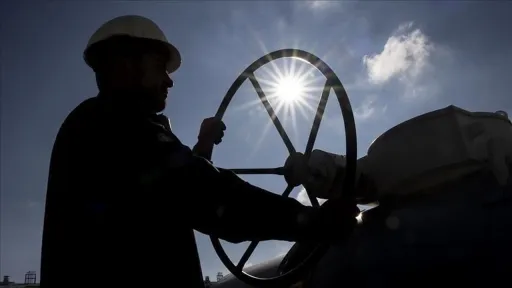By Kudra Maliro
More than three decades after the advent of these unique motorbike taxis in the Ugandan border town of Busia, the Boda-Boda remains the one public transport that seldom lets the traveller down — be it availability, affordability or agility.
Whether one is caught in a city snarl or looking for a commute through the countryside, motorbike taxis are the best bet in terms of practicality.
Cross-border origins
Boda-Boda derives its name from "border-border", being originally used to transport goods between Uganda and Kenya. Since it was introduced in Busia in 1988, these motorbike and bicycle taxis have spread to several towns in Uganda, and gradually throughout East Africa, Central Africa and West Africa.
The story of Boda-Boda's evolution from a bicycle to a motorbike taxi is a fascinating one. By 1982, Uganda was producing a lot of sugarcane that needed to be exported. Since it was difficult for growers to export their produce from Uganda to Kenya by bicycle, several commercial operators decided to import motorbikes from Asia to overcome the challenges of transportation.
So, what started as a transport solution for coffee and sugarcane going from Busia to neighbouring Kenya quickly metamorphosed into a dual-purpose business.
"These operators would go to Kenya with goods and, on the way back, they transported people. Hence the name 'border-to-border', which became 'Boda-Boda' over time," Vincent Kisiriko, a Ugandan journalist based in Kampala and the author of a book on the expansion of Boda-Boda in East Africa, tells TRT Afrika.
At the time, these motorbikes were expensive to procure, the trade-off being that they were low on fuel consumption.
Kisiriko recalls that around 2000, Uganda witnessed a boom in the transport sector with the massive import of MATE, a new variant of scooters made in Japan. With transport economics meeting commuter convenience, the popularity of Boda-Boda exploded soon after.
Today, across East Africa and many other parts of the continent, commuters plagued by the daily dose of chaotic traffic in the cities prefer the ease of hopping onto a Boda-Boda to the detriment of conventional taxis and buses.
Big and growing
According to a report published in March 2023 by the Kampala Capital City Authority, there are over 150,000 registered Boda-Bodas in the Ugandan city alone, and an estimated three million across East and Central Africa.
To cross the Uganda-Kenya border, a Boda-Boda operator needs to possess a valid driving licence that costs US $180 and pay around 50,000 Ugandan shillings (US $20) in transit fees. But it apparently makes economic sense, more so with technology enabling innovation bringing in more business than ever before.
Boda-Boda on tap
Commuters in various East African countries can now use a mobile app to call a Boda-Boda from anywhere.
Uganda has adopted certain regulations to manage the growth of the sector even as local entrepreneurs turn to technology to boost their profitability. Safeboda is one such mobile app that allows passengers to book reliable rides, with motorbikes equipped with helmets and riders trained in road safety and first aid.
A report published in 2013 by the pan-African banking group Standard Bank projected that the Boda-Boda sector was set to become the second-largest employment-generating avenue in Uganda after agriculture.
In Kenya, the industry already generates $4 million a day, according to the Motorcycle Assembly Association of Kenya.
In Tanzania, tens of thousands of young men jump onto the Boda-Boda bandwagon every year, even though their safety is increasingly a cause for concern. According to government statistics, Tanzania imported 1,884 private motorbikes in 2003. Last year, 185,110 private motorbikes were imported, most of which, for the Boda-Boda sector.
"Boda-Boda contributes greatly to the Ugandan economy. Imagine millions of such motorbike taxis running everywhere across the country each day," says Kisiriko.
Sharif Nsubuga, a 30-year-old father of three, has been a Boda-Boda driver for over six years in the metropolis of Kampala. He wakes up every day at 4am to criss-cross the sprawling city, ferrying commuters to and from their homes and work places. He is so busy that a normal day doesn't end until around 10pm.
"I earn around $15 dollars a day working as a Boda-Boda rider after accounting for the cost of three litres of fuel on average," says Nsubuga.
The young man is saving up to buy two or three motorbikes so that he can continue his studies, which he abandoned six years ago. He admits that his job is risky because of the chaotic nature of Kampala's traffic, but has become used to it.
In the east of the Democratic Republic of Congo, Boda-Bodas first appeared in the early part of the millennium, when Congolese traders travelling to Uganda and Kenya came across these motorbikes being used for public transport.
Kambale Manoke, a Beni-based trader, is one of the pioneers of the Boda-boda sector in eastern Congo. The idea struck him in 1998 after he travelled to Kampala to buy goods.
"A Ugandan friend came with me to do the shopping. To get around, he told me to take the Boda-Boda. I thought that if I bought a motorbike here in Kampala to use in Beni, I would do the same thing to earn money," he says.
Manoke recalls how riding a motorbike in Beni was once a luxury. "A lot of people paid money to go for a ride on a motorbike without a destination in mind. In the three big cities of eastern Congo, we today have more than a million Boda-Boda taxis," he says.























